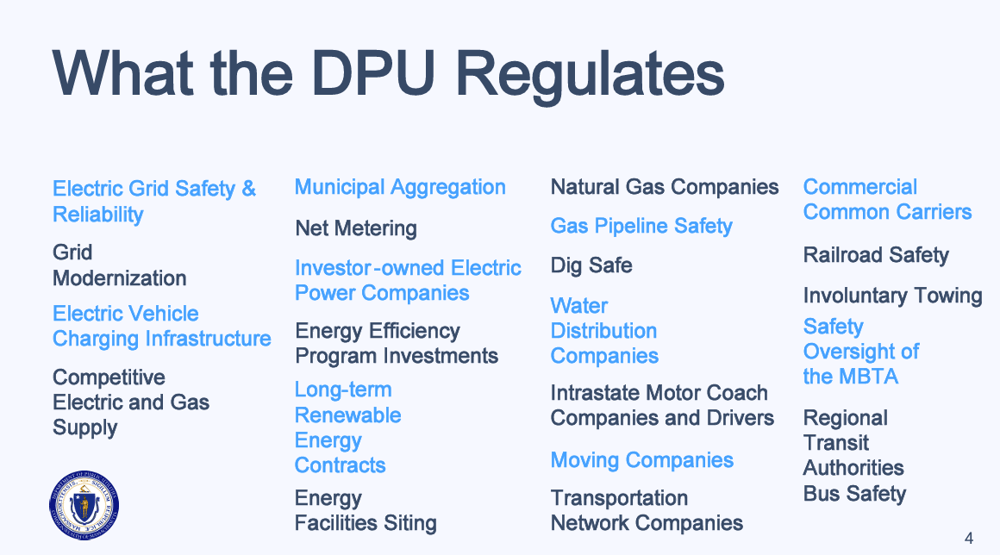What should we do about gas heat? A problem from Newport to Northampton
Over the past week, many of us here in New England might have turned on our heat as temperatures dipped to near...
In our work, we pay close attention to the agencies regulating the electric and gas utilities. In Rhode Island, that’s the Public Utilities Commission (PUC); in Massachusetts, that’s the Department of Public Utilities (DPU).
Both commissions have always had a big job – regulating what economists call "natural monopolies." "Natural" because it doesn’t make sense to have more than one company in a community distributing electricity or gas. How many poles and pipes do we really want? However, the role of utility regulators takes on a whole new importance when we realize that we must phase out fossil fuels and electrify buildings and transportation. If utility regulation was ever easy, it’s not anymore.
Here’s a quick rundown on what the utilities have on their plates these days – standard rate cases, electric capital improvements, advanced metering, solar net metering, grid modernization (known as Electric Sector Modernization Plans in Massachusetts and Power Sector Transformation in Rhode Island), offshore wind procurement, solar interconnection rules, municipal aggregation, rate reform, energy affordability, Gas System Enhancement Program, and the "Future of Gas." Easy stuff, right?
Recently, the Massachusetts DPU finished a series of four "Road Shows" to engage consumers directly and to elicit comments from the public. The DPU deserves credit for that, along with its other efforts to improve public engagement and to address environmental justice. They opened up the Road Show with a short presentation involving many important things, but this slide is mind-blowing. It’s a list of the DPU’s responsibilities.

Maybe once upon a time, it made sense for the DPU to oversee water utilities, moving companies, and the safety of railroads, the MBTA, and regional transit buses. It doesn’t make sense anymore. We have a climate crisis and laws that require mitigation. There is simply too much work to be done regarding energy now. Furthermore, the cost of making necessary improvements to the power grid is going to grow significantly in the next decades. Consumers need watchdogs who are not distracted by competing priorities. The commissioners simply do not have the time or mind space to do all that’s on the slide. This is not a knock on them at all.
One might say that the DPU just needs more staff. It does – for the energy work! Adding more staff so that the DPU can maintain that crazy list of responsibilities is not going to help the decision-making commissioners put more time and thought into how we manage the clean energy transition. They should not have to think about supervising staff working on MBTA safety issues and what to do about safety issues involving every regional transit bus in the Commonwealth. Moving companies?
Where should those non-energy responsibilities be transferred to? Move them to existing agencies or set up new smaller ones. As an energy advocate, it’s not my job to know. I don’t really care as long as they are moved away from DPU (and not dismantled).
We can talk all day about climate policy and how we are going to fund the clean energy transition, but if government is not structured properly to manage the transition from fossil fuels, we won’t be able to formulate, execute, and evaluate the policies we desperately need. It’s time for the governor and legislature to assign some of those non-energy responsibilities to other agencies. Narrow the scope of the DPU to electricity and gas regulation.
Over the past week, many of us here in New England might have turned on our heat as temperatures dipped to near...
On Friday, Superior Court Judge Brian Stern put a pause on PPL's purchase of Rhode Island's electric and gas...
Comments